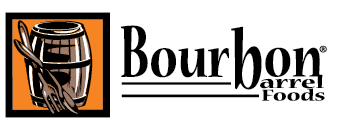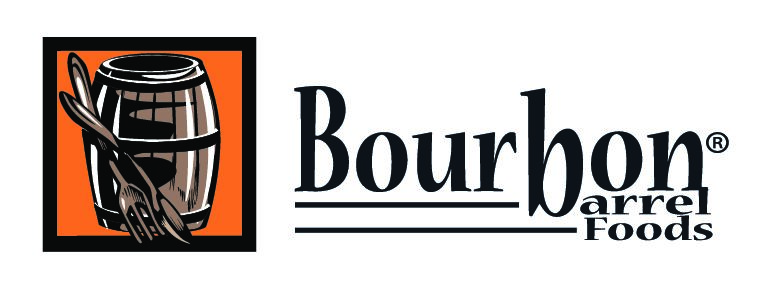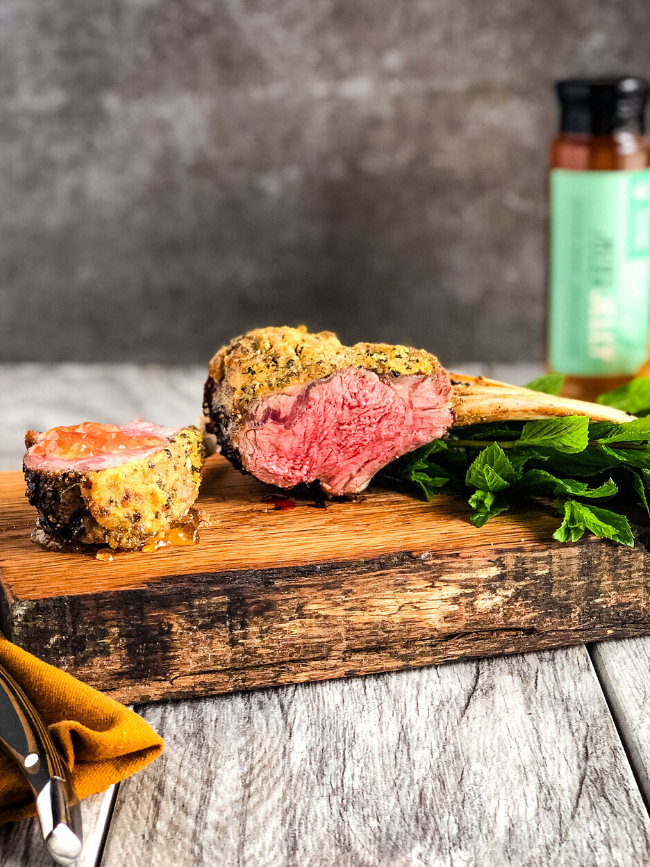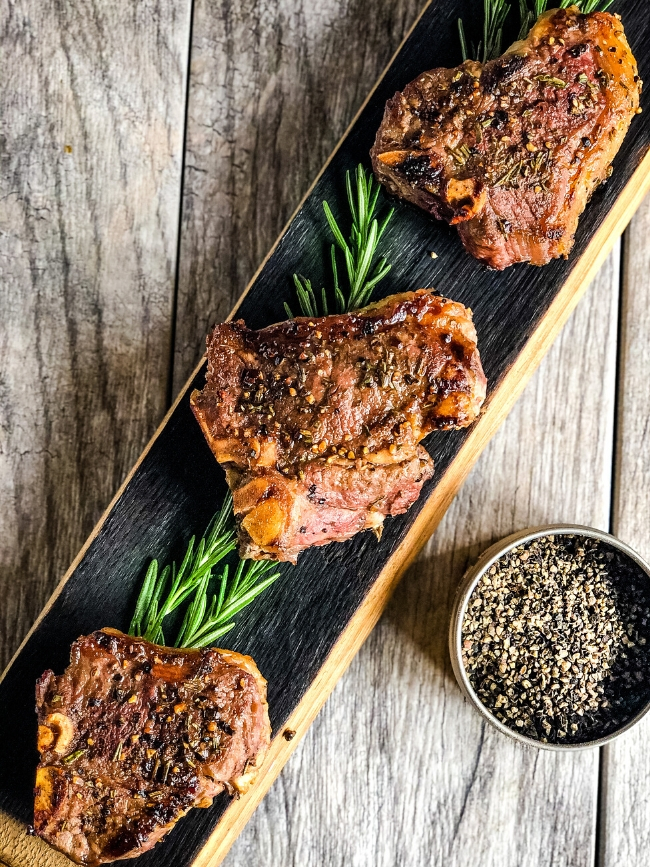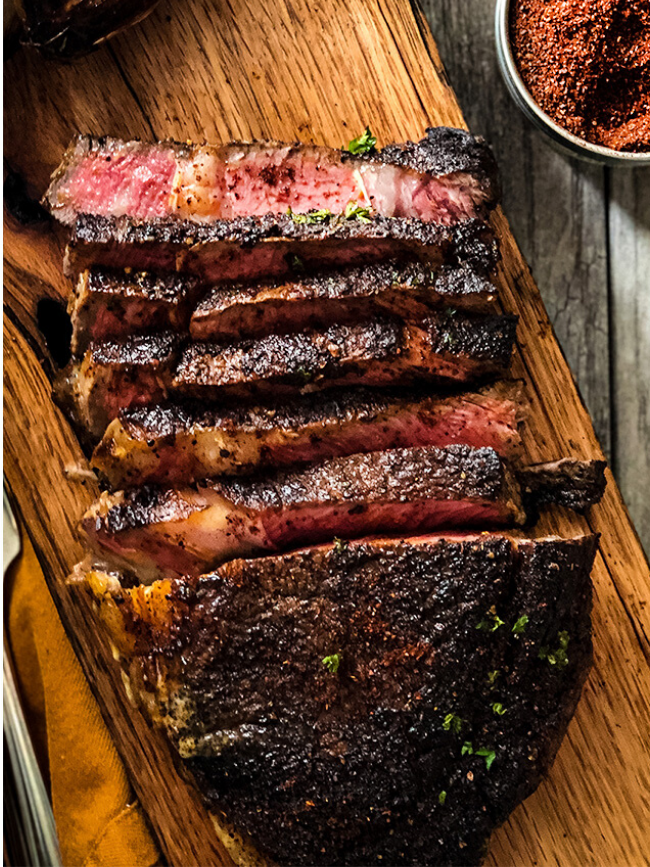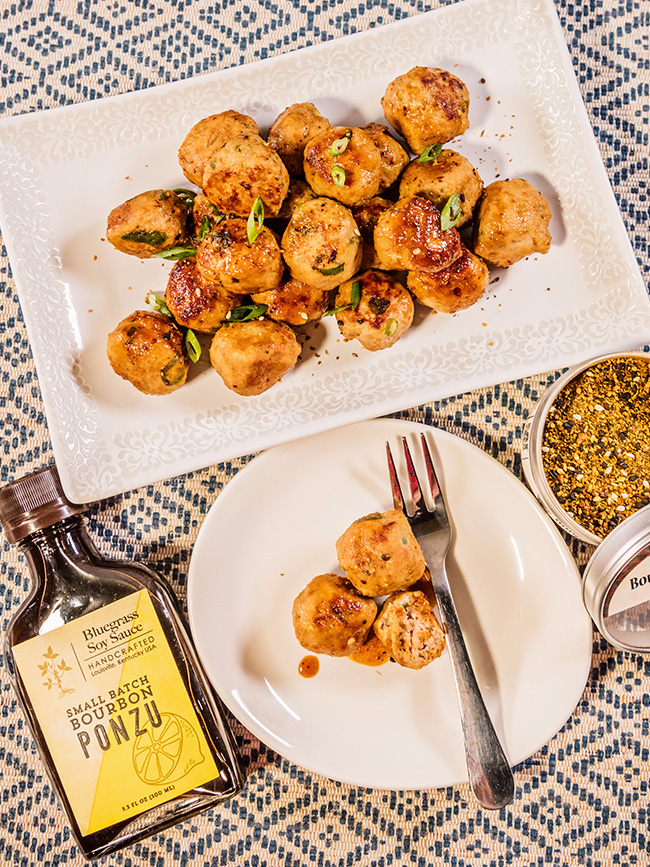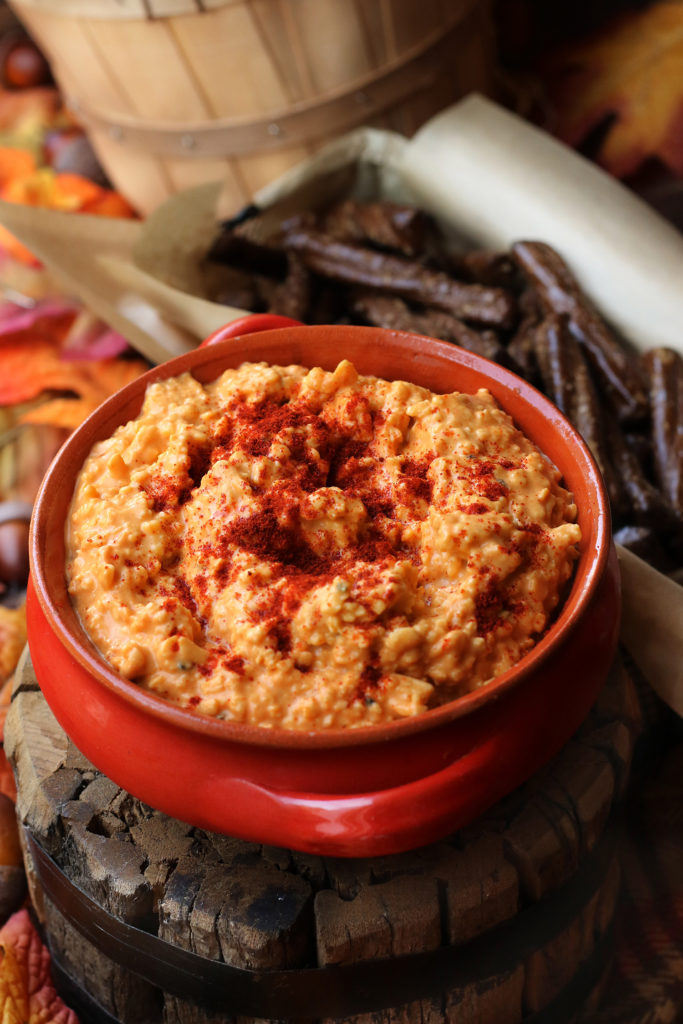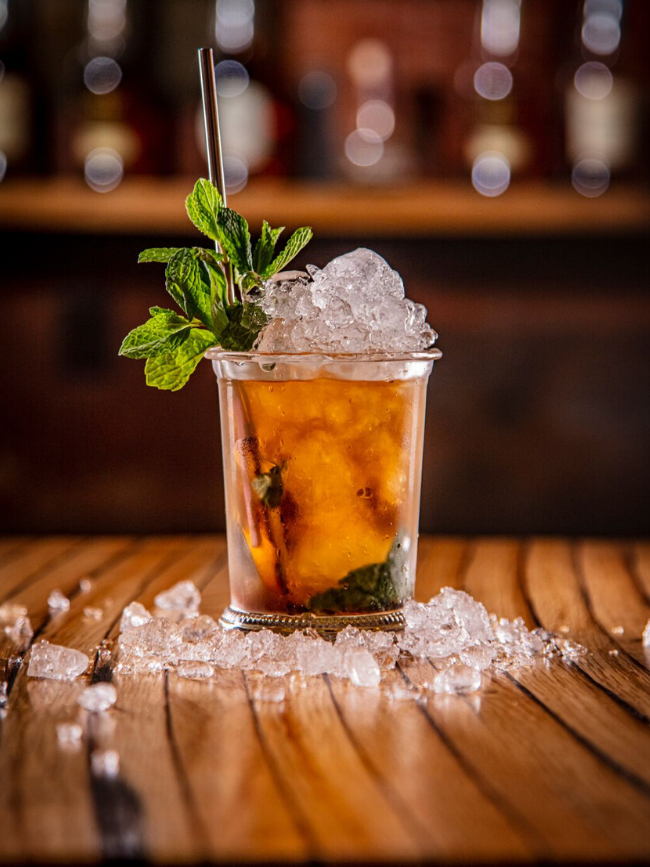Freedom Run Farms Rack of Lamb
Ingredients:
1 rack ribs
3 tablespoons Dijon mustard
1 tablespoon Bourbon Smoked Sea Salt
1 tablespoon Bourbon Smoked Pepper
6-8 stems of fresh mint (picked)
1 cup bread crumbs
½ cup Mint Julep Jelly
Vegetable oil
Method:
Bring a small saucepan of water to a boil. Put mint leaves in briefly (10 seconds) and then drain off and cool with cold water. Squeeze all access water out of leaves and leave on a towel to dry further.
Put mint leaves and bread crumbs in a food processor and pulse until a nice crumb
topping is formed.
Set aside in a large hot skillet on high heat add 3-4 tablespoon of oil. Season whole rack of lamb with Bourbon Smoked Sea Salt and Bourbon Smoked Pepper.
Sear off whole rack until nice and golden on both sides (approx. 3 minutes per
side). Remove from heat and brush top side of racks with Dijon mustard. (not over the bones)
Finish lambs in a preheated 300-degree oven until internal temperature reaches 140-145 degrees (medium-rare). Let rest 10-15 minutes before cutting.
Serve with Mint Julep Jelly
Freedom Run Farms – found at Kroger Co.
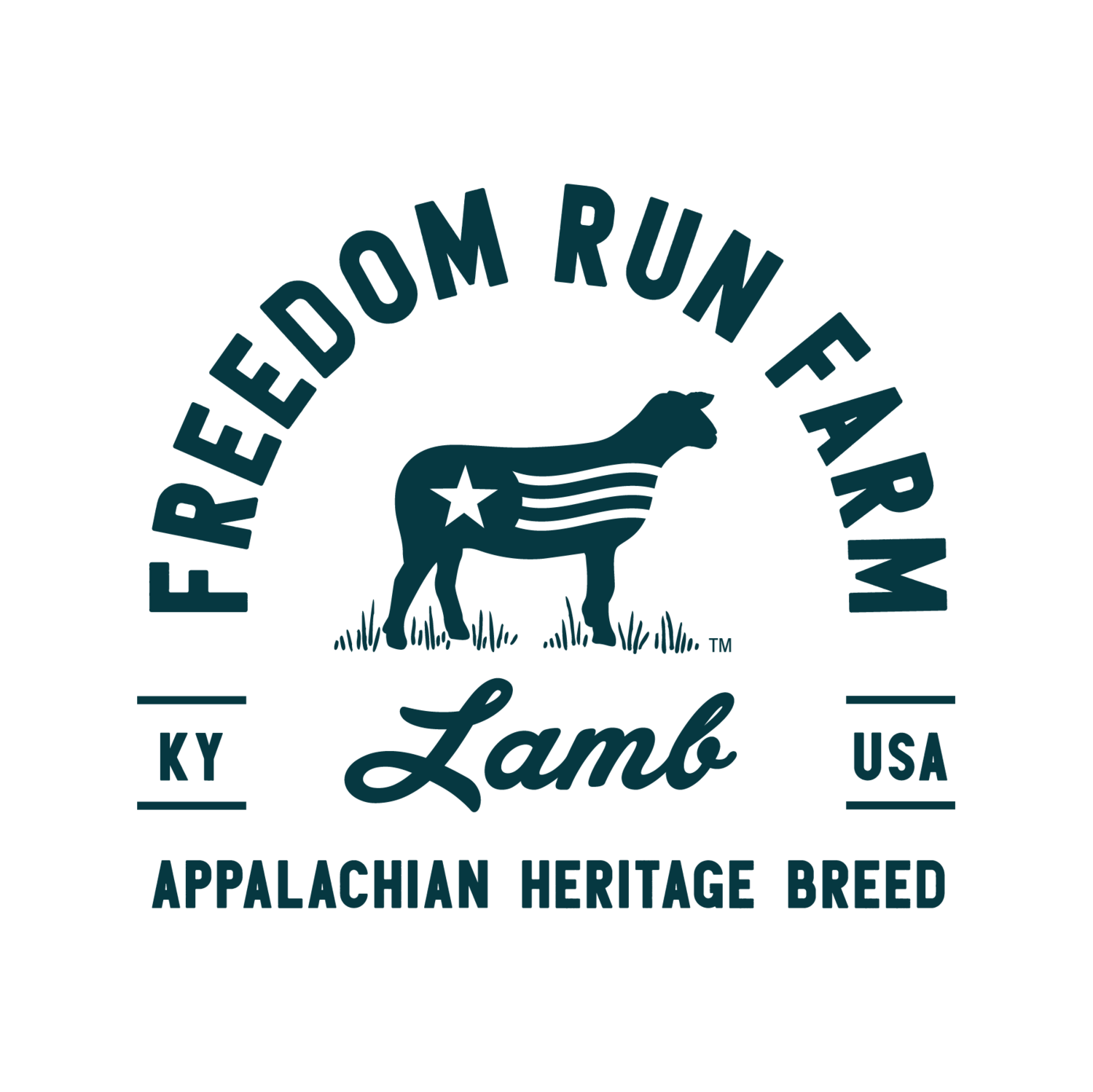 There are many breeds of sheep and not all produce a flavor profile that’s entirely desireable. Wool and milk breeds, common in Colorado and New Zealand, produce a meat that is very gamey with a high concentration of lanolin. An oily compound produced by sheep bred specifically for their wool, lanolin can impart an undesirable gamey flavor in lamb.
There are many breeds of sheep and not all produce a flavor profile that’s entirely desireable. Wool and milk breeds, common in Colorado and New Zealand, produce a meat that is very gamey with a high concentration of lanolin. An oily compound produced by sheep bred specifically for their wool, lanolin can impart an undesirable gamey flavor in lamb.
But instead of using the common breeds that are raised in Colorado and New Zealand, we chose to raise a heritage breed. In doing so we are helping to preserve an important agricultural product that could easily be lost to the demands of industrial agriculture.
But we’re not just raising any heritage breed. We’re raising an Appalachian heritage breed that was bred specifically for their meat—the Katahdin. An Appalachian heritage sheep breed, the Katahdin was specifically developed in this country to be a versatile, robust animal with exceptional carcass qualities of tender, mild lamb.
A TASTE OF PLACE
The pastures of Kentucky are perfect for this breed and allow them to flourish in the field and develop a taste of place. Our sheep graze and forage pastures that have been meticulously managed to produce grasses that are native to the region. Because these conditions cannot be reproduced anywhere else, and because these flavors are imparted into the animals’ meat, the resulting product is a direct reflection of the place in which it was produced.
At Freedom Run Farms

Valerie Samutin founded Freedom Run Farm in 2010. After attempting to recreate the meal she enjoyed with her husband on their wedding night—roasted lamb, naturally—they were both disappointed with the quality of lamb that was available. Unable to find grass-fed, organic lamb proved to be a challenge, so Valerie set out to learn everything she could about lamb shepherding.She took a deep dive into not just lamb but sustainable agriculture as well. When the desire became too much to bear, Valerie took the leap and ditched urban life in Chicago to set up shop in rural Kentucky. She started her farm and slowly grew her flock to about 100 heads. These sheep enjoy a quiet life in the pastures of Freedom Run Farm, foraging their own food in open space.
BEYOND HER OWN FLOCK, VALERIE IS DEEPLY DEDICATED TO RETURNING KENTUCKY TO ITS LAMB PRODUCING HEYDAY.
For decades, Kentucky was the primary producer of lamb in the United States—the region even developed its own regional style of lamb barbecue. However, with the onset of synthetic fabrics and the reduced demand for wool, the lamb industry bottomed out after WWII.
Valerie saw an opportunity in the rise of sustainable and heritage foods, and she’s now helping to lead the way in reintroducing lamb as both a profitable agricultural endeavor and a means for the region to reconnect with its culinary heritage.
